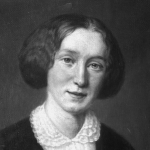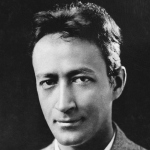Highlight Actions
Enable or disable annotations
"I grant you ample leavegrant you ample leave In other words, to let you express your grand opinion
To use the hoaryhoary Ancient, worthy of respect for its age formula 'I am'
Naming the emptiness where thought is not;
But fill the void with definition, 'I'
Will be no more a datumdatum A single piece of data or information than the words
You link false inferencefalse inference In philosophy and logic, an inference is the act or process of deriving logical conclusions from premises known or assumed to be true. Inferences are typically evaluated to be valid or invalid. with, the 'Since' & 'so'
That, true or not, make up the atom-whirlatom-whirl The orbital paths of electrons around the nucleus.
Resolve your 'Ego'‘Ego’ Latin for “I”., it is all one web
With vibrant ether clotted into worlds:
Your subject, self, or self-assertive 'I'
Turns nought but object, melts to molecules,
Is stripped from naked Being with the rest
Of those rag-garments named the Universe.
Or if, in strife to keep your 'Ego' strong
You make it weaver of the etherial lightetherial light Heavenly light,
Why, still 'tis Being looking from the dark,
The core, the centre of your consciousness,
That notes your bubble-worldbubble-world : sense, pleasure, pain,
What are they but a shifting otherness,
Phantasmal fluxPhantasmal flux A fantastic, ghostlike stream or flow of moments? —"


















Comment form: